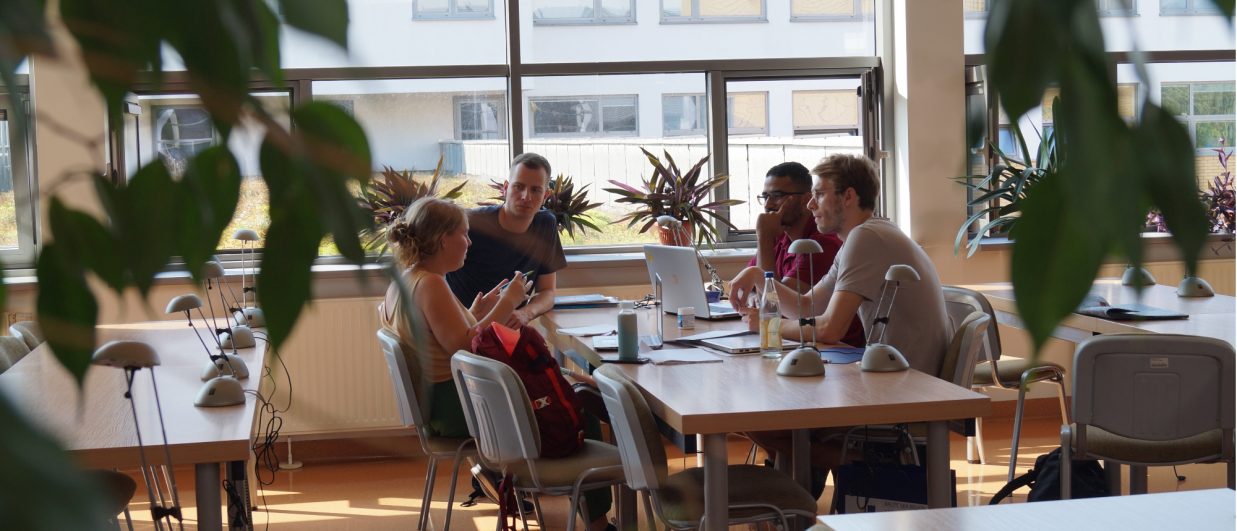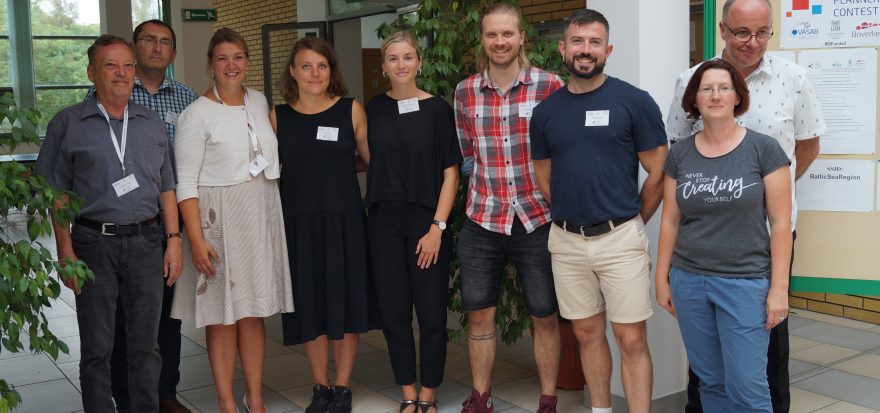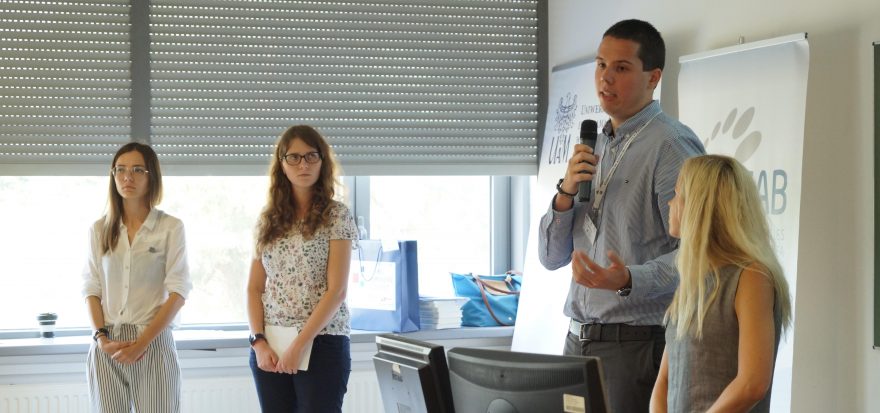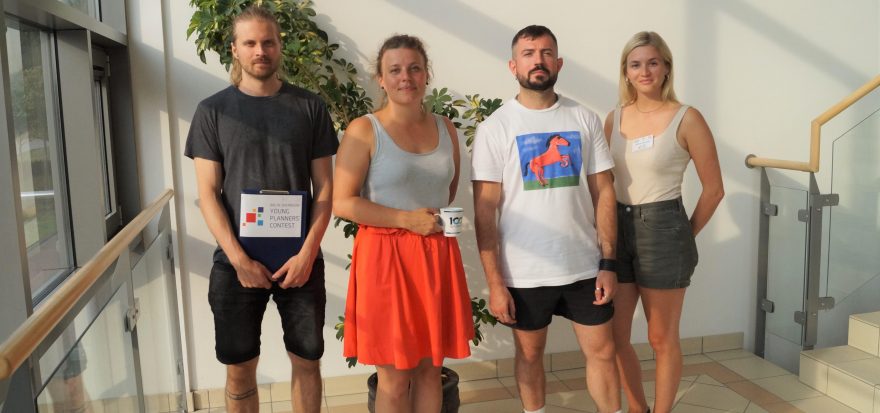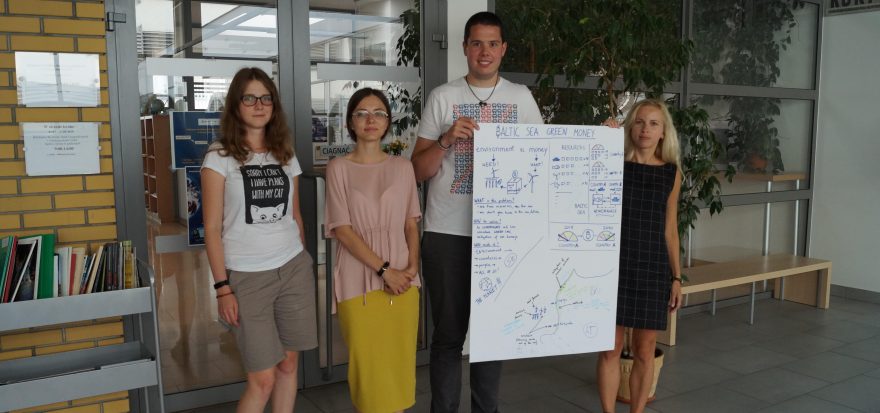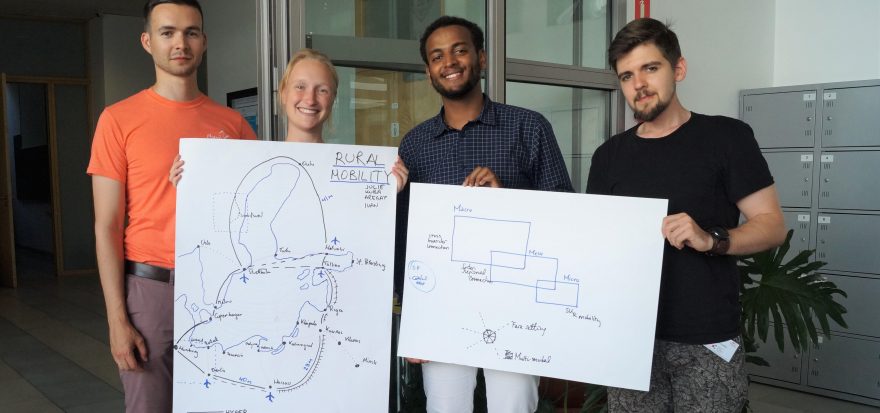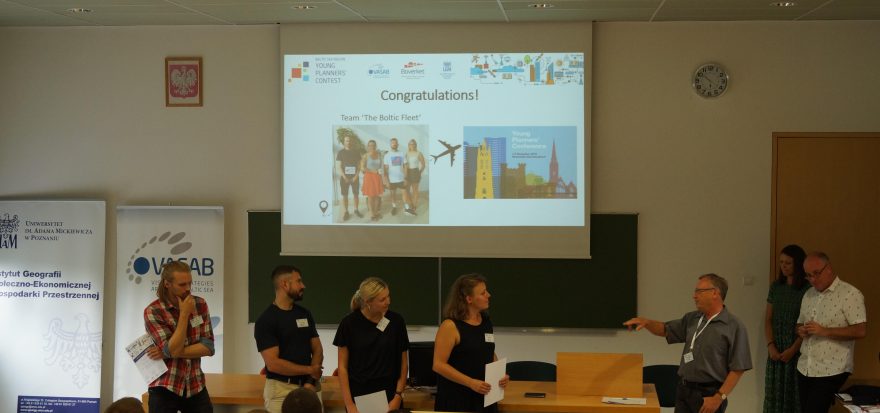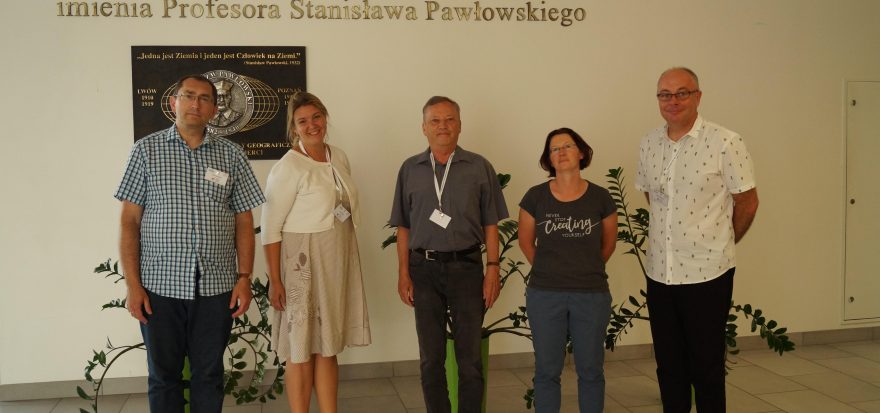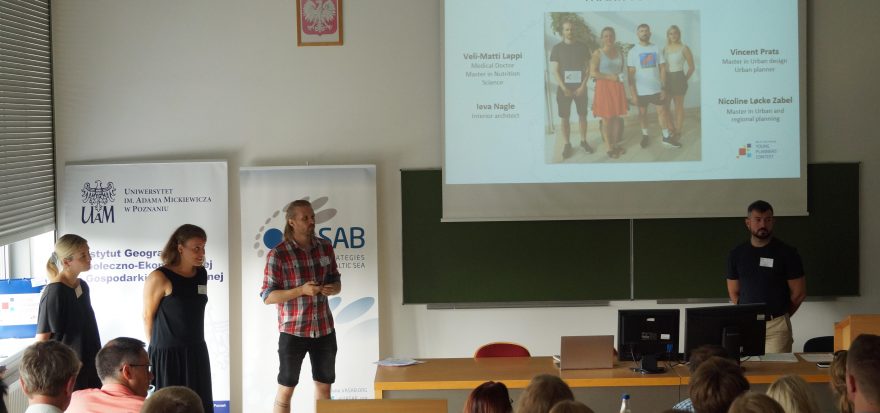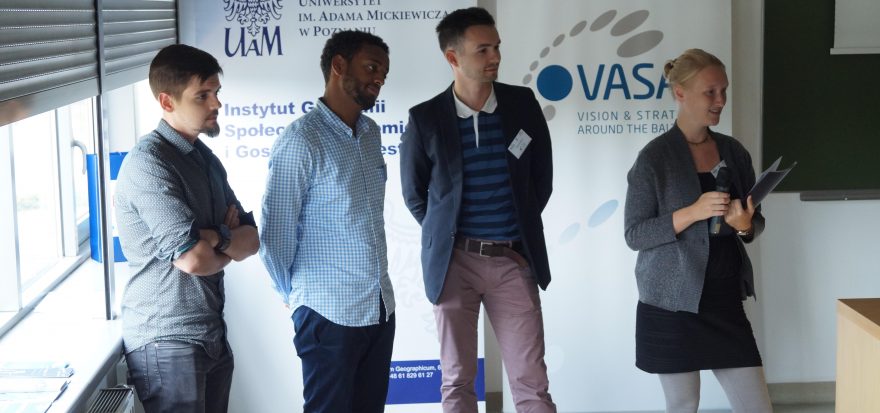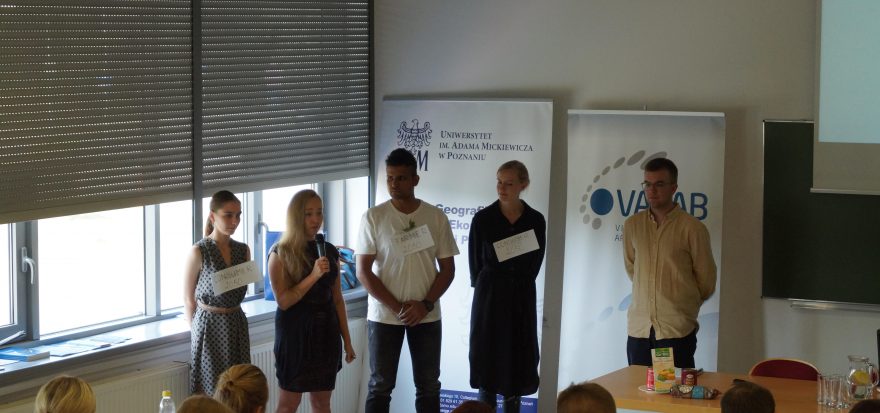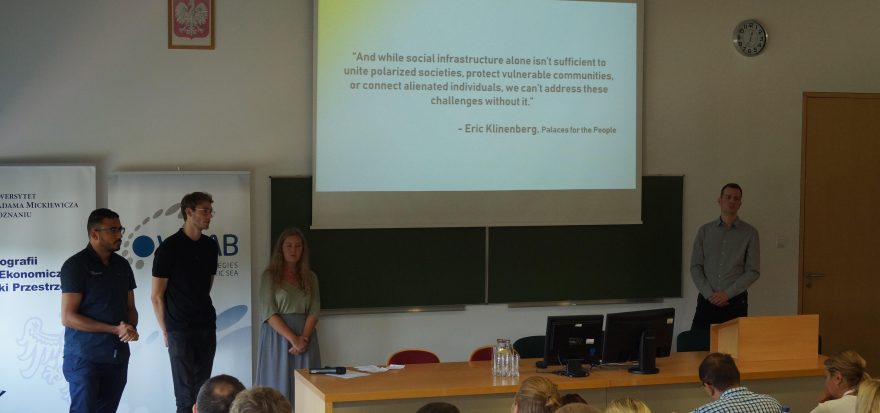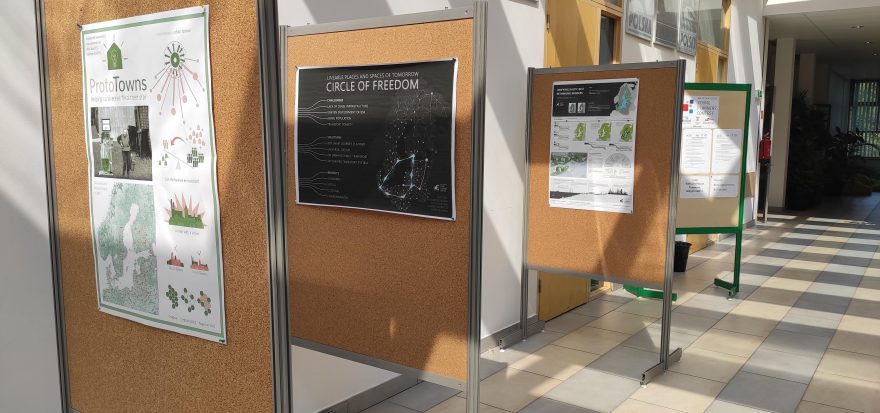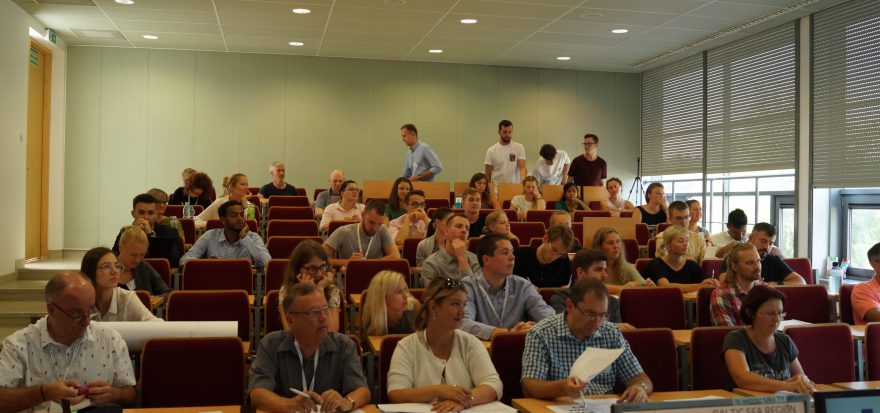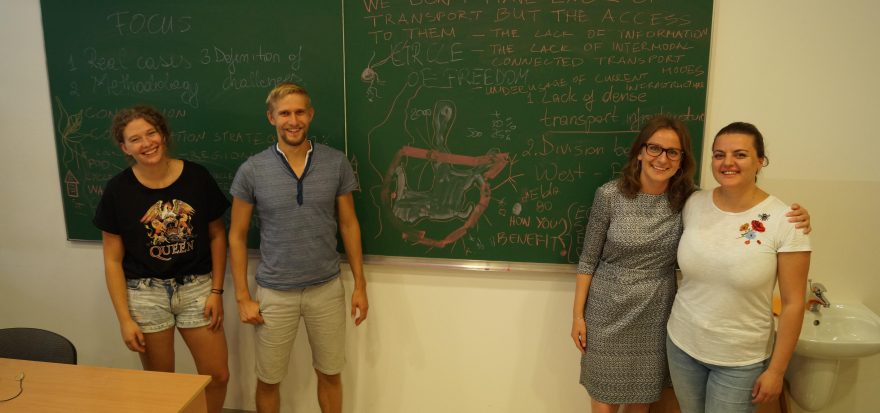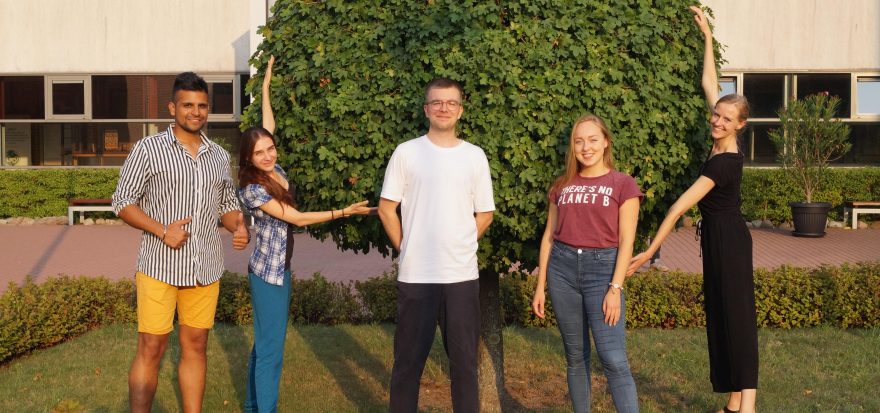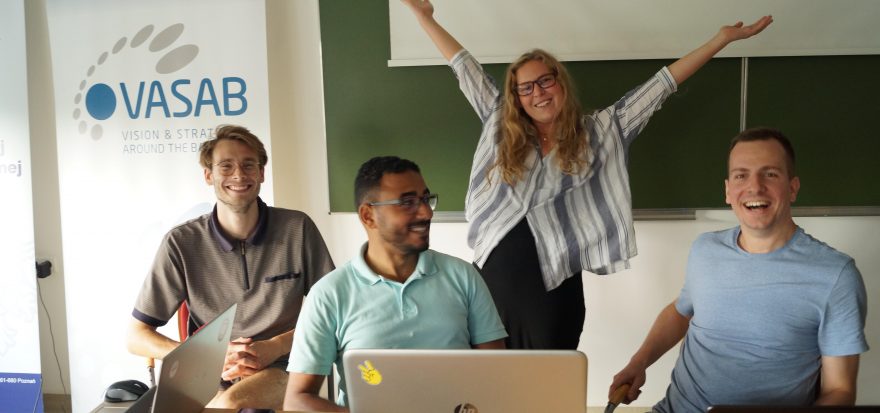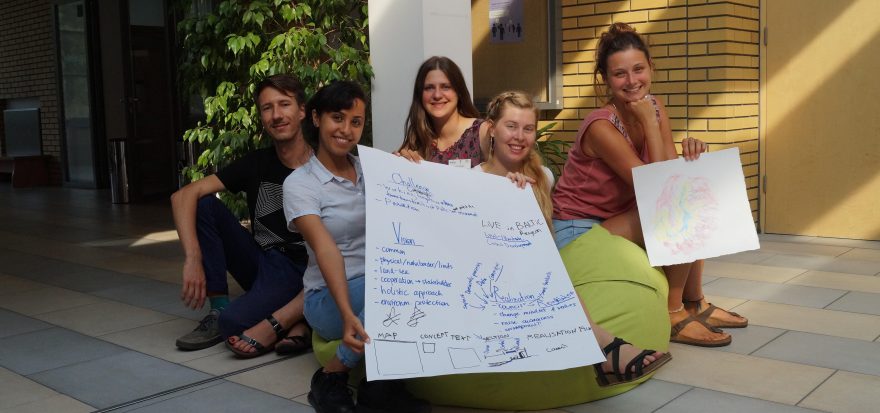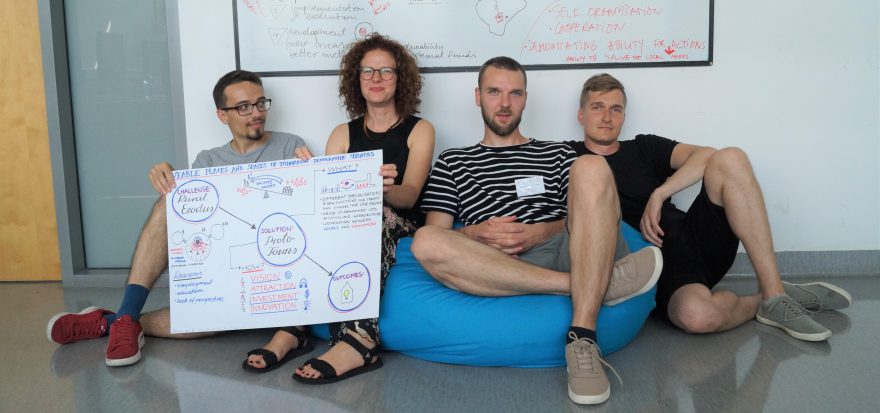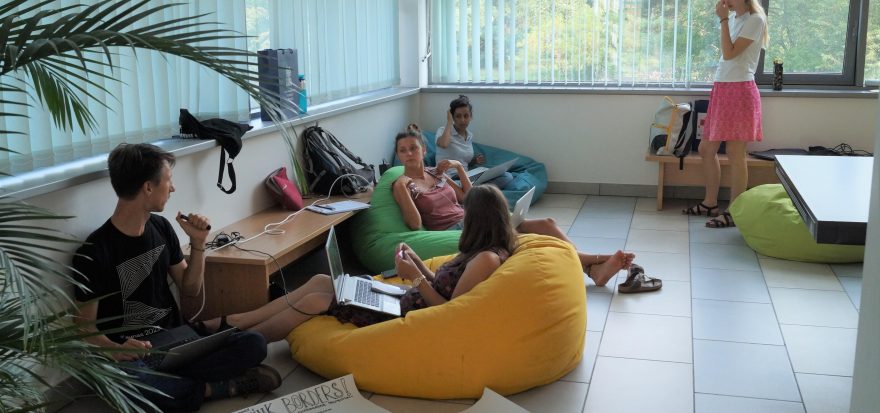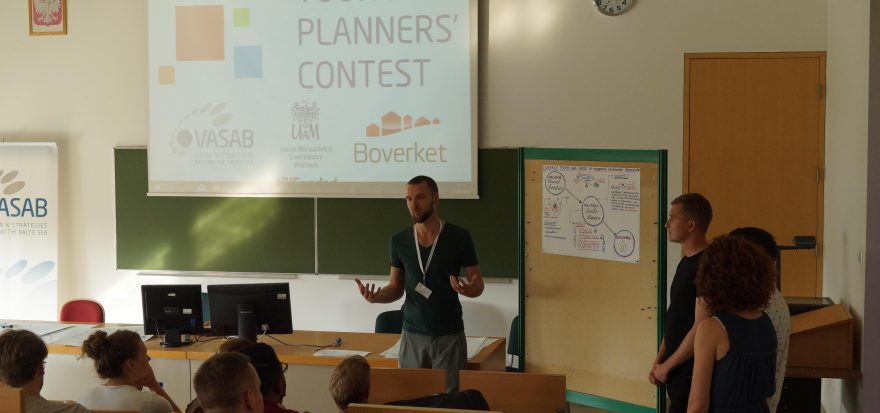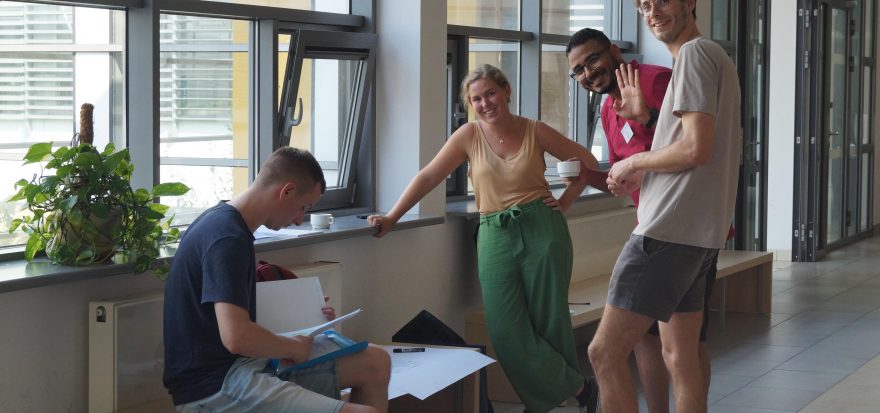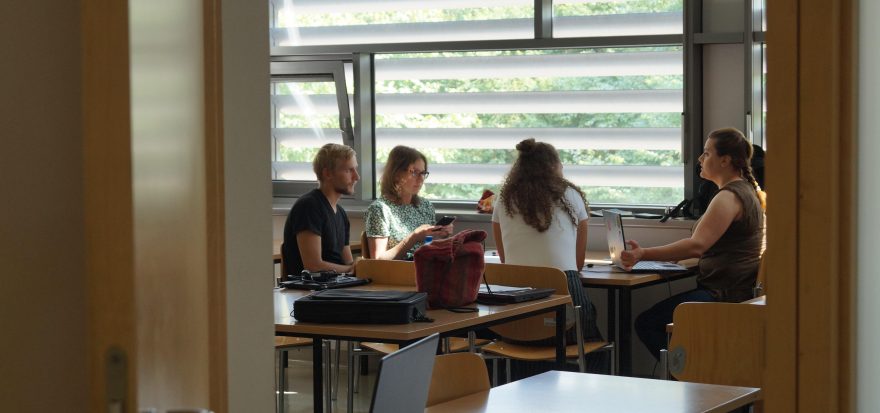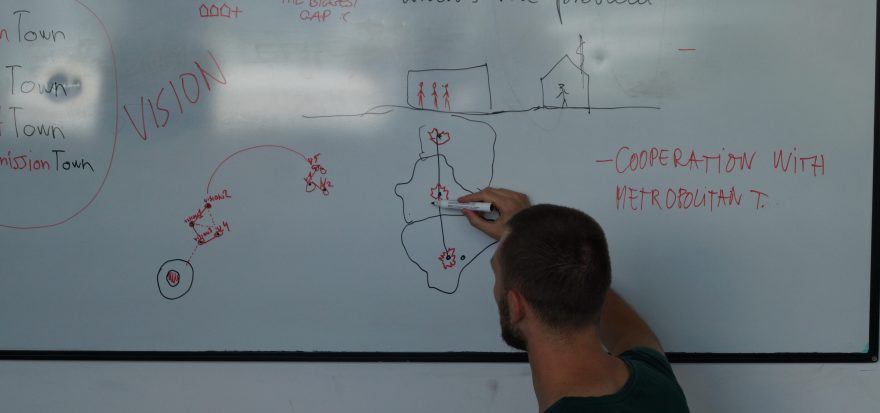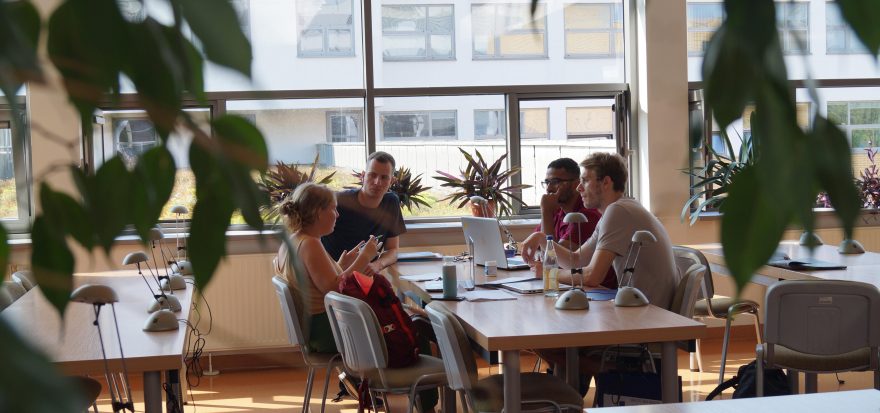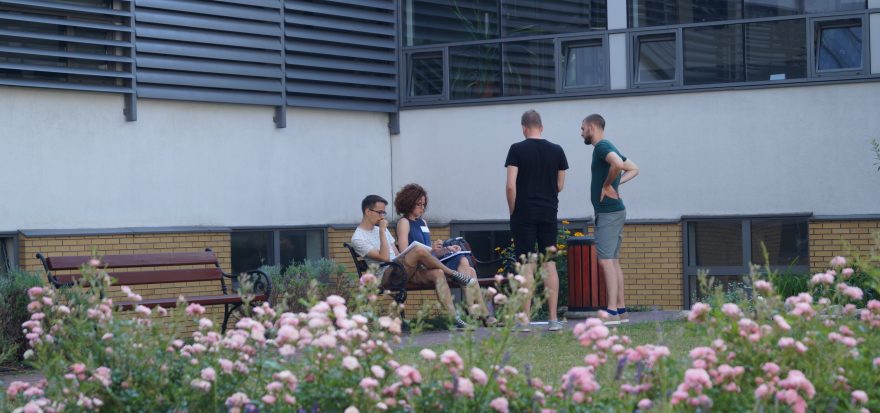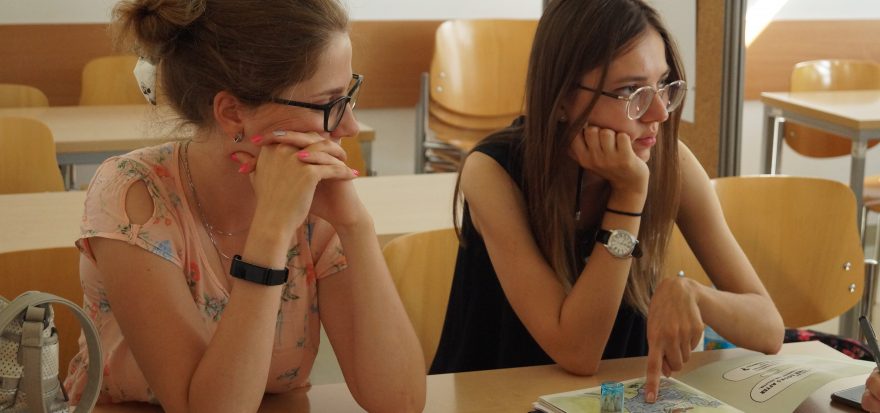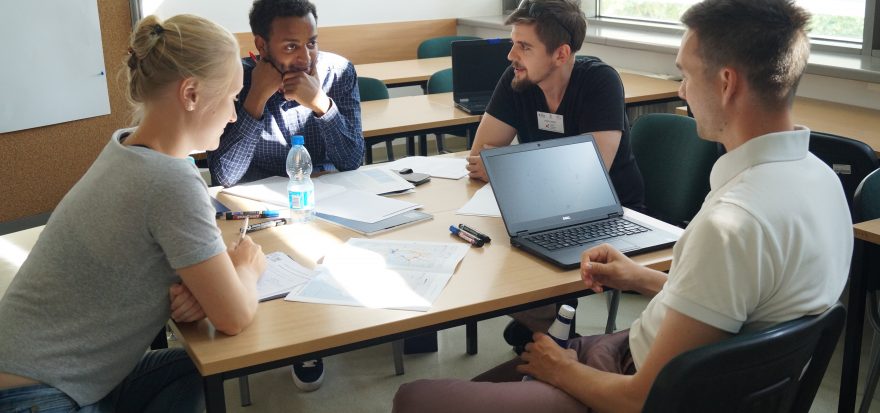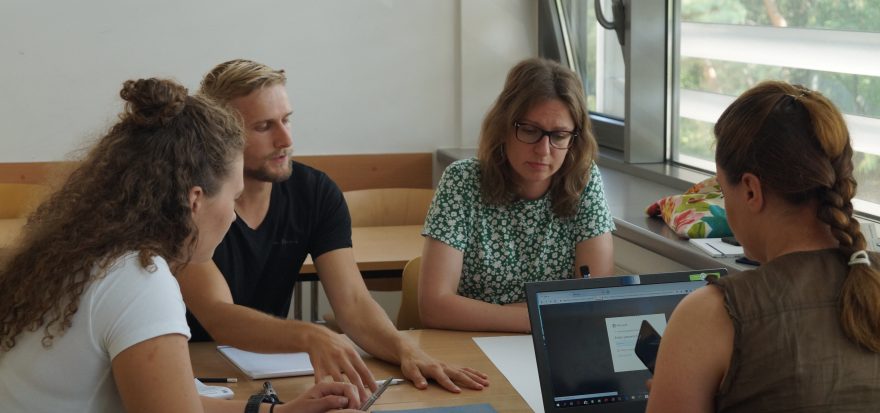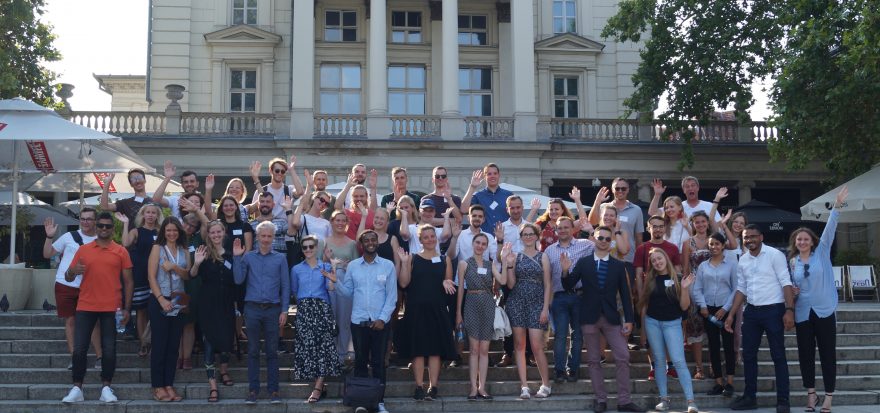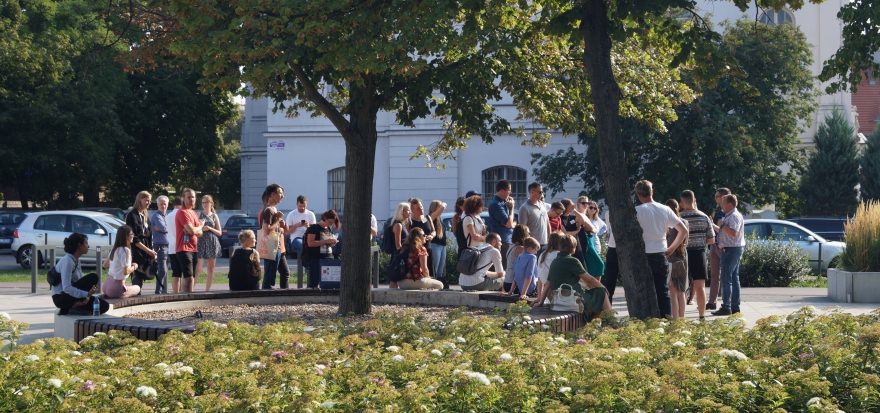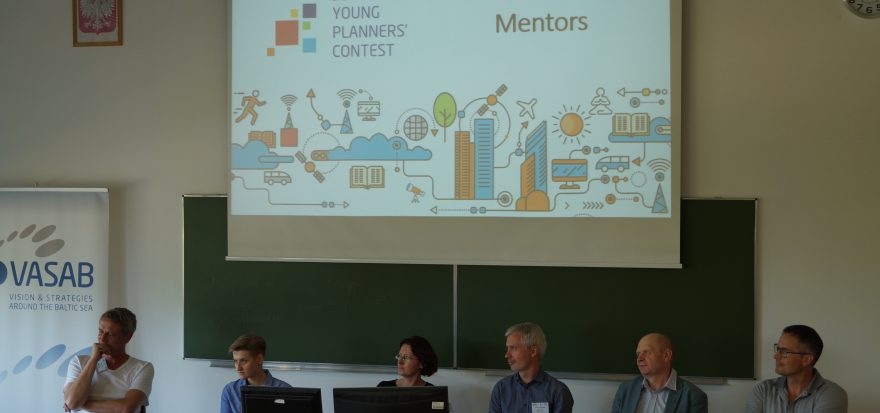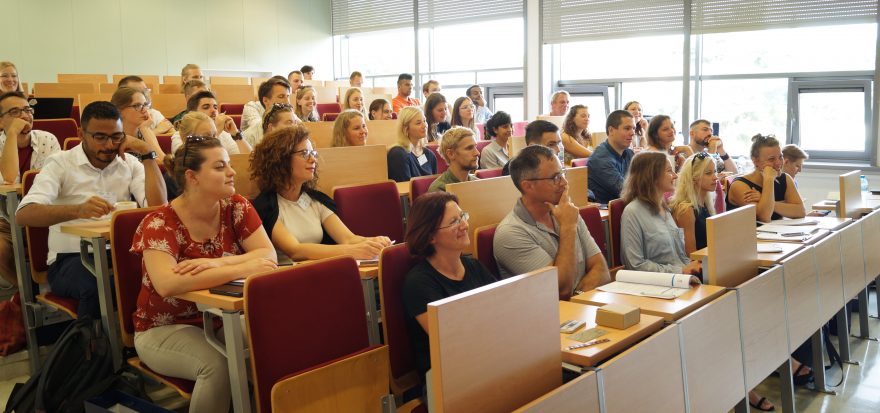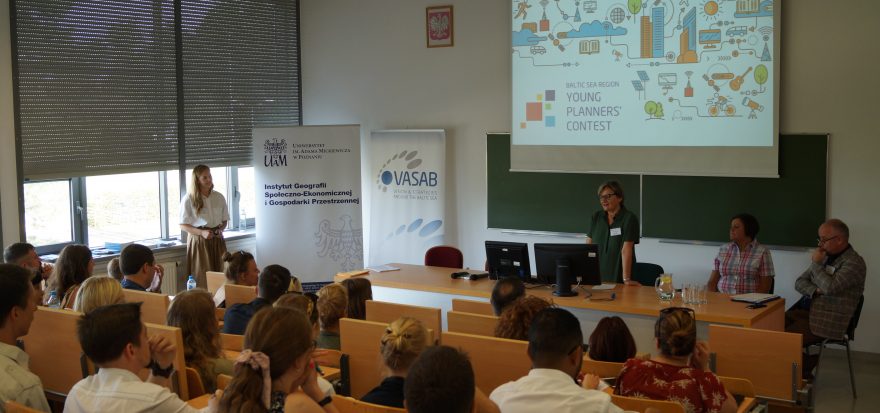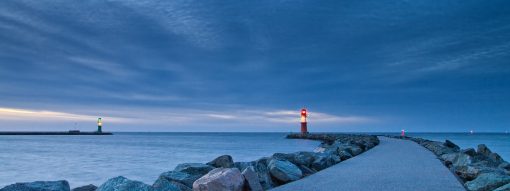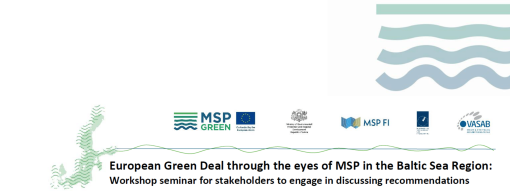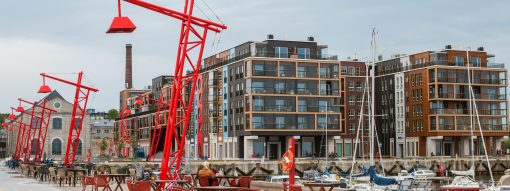During the first BSR Young Planners` Contest 8 visions to liveable BSR were created
During the last heatwave of the summer 2019 34 dedicated students from all over the BSR and beyond met up in Poznan, Poland to participate in the Baltic Sea Region young Planners` Contest “Liveable Places and spaces of Tomorrow”. Contest took place from 26-29 of August and was organized by VASAB in cooperation with Boverket and Adam Mickiewicz University in Poznan with financial support from the Swedish institute.
Before the Contest participants chose one of their favorite topics within the contest methodology – demographic changes, response to climate change, improving accessibility and maritime spatial planning. Based on their preferences 8 teams were formed, representing different backgrounds and countries.
Contest continued for 4 days. In the first day participants, mentors and rest of the team got to know each other, went on a site visit in Poznan as well as started to think of the challenges within the Contest methodology. For the next 2 days participants would dig deep in the challenges of BSR and look for proposals to create more liveable region in 2050. Guided by a cross-sectoral and international team of mentors participants overcame challenges in the creative process and were encouraged to step outside of their comfort zones. Teams worked hard not only during the days, but some also overnights to finish on time. On the last day of the Contest participants presented their work to the jury.
After heated discussions, jury decided the proposal that was the strongest and aligns best with VASAB agenda was the one developed by the Boltic Fleet. Participants and mentors of the Young Planners` Contest voted the United Baltic Belt as their favorite. Nevertheless, all teams carried out excellent work and exceeded expectations put on them.
Ideas developed during the Young Planners` Contest will serve as an inspiration to update VASAB Long Term Perspective. Back at home participants are discussing how they could develop their ideas further. VASAB would like to say an enormous thank you to all the involved parties for the work that was carried out!
Team of mentors: Jacek Zaucha, Jonas Büchel, Maria Gunko, Per Stenholm, Tomasz Kossowski, Vita Brakovska
Jury: Wilfried Görmar (chair), Åsa Bjering, Tālis Linkaits, prof. Paweł Churski, Vita Brakovska
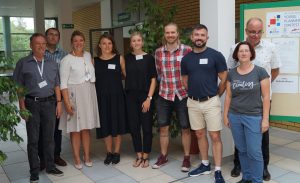
Winners: Team ‘The Boltic Fleet’ – Vincent Prats, Ieva Nagle, Veli-Matti Lappi, Nicoline Løcke Zabel.
Participants’ choice vote: Team ‘Baltic Belt’ – Olga Kashko, Shahba Al-Kebsi, Josefine Gottschalk, Paulius Kliučininkas,Laura Kristine Marianne Grace Bergman.
Teams presented 8 ideas to the jury:
Team BeaM presented idea about Baltic Sea Green Money suggesting to introduce a common quota system in which all countries will be given a ranking depending on how much pressures to the environment they cause. According to the ranking the countries would have to invest in compensating measures.
Presentation
Poster
Team Baltic Sun suggested to develop socio-cultural transport hubs for the future urban liveability in their project the Baltic Sun of Interconnectivity. According to their vision railway stations and smaller transport hubs would serve also as places to work, rest, gather and get involved in cultural activities.
Presentation
Poster
Team Baltic Beans introduced the Future Food System of BSR in which conventional farming, especially meat and dairy production would be replaced with organic farming, more support would be provided to plant-based proteins. Accompanied with educational network of Edu Farms to change consumers’ mindset this would support reducing eutrophication in the Baltic Sea.
Presentation
Poster
Team I 3 in their proposal with the same title envisioned a BSR in which any door-to-door travel would take 3 hours. This would be achieved by elaborating a high speed Hyperloop network connecting biggest metropoles and ensuring secondary and last mile connections all over the region.
Presentation
Poster
Team Star in their project Proto Towns investigated how rural areas can find their star by elaborating a strategy how can declining areas can create place-based visions with very concrete goal for regeneration and new meaning. On macro-regional level it would be supported by a network of Proto Towns.
Presentation
Poster
Team Baltic Belt in their project United Baltic Belt: Rethinking Borders presented a vision in which until 2050 Baltic Sea and its coastal area would be governed as a united entity which would increase the quality of life, improve environmental status of the Baltic Sea and harmonize planning process across the borders.
Presentation
Poster
The Boltic Fleet in their project the Boltic Fleet – connecting the rural and urban areas developed a vision towards vivid and flourishing rural areas by creating a mobile fleet that would deliver basic services such as medicine or groceries to the rural and sparsely populated areas. The mobile fleet would also serve as a connector between urban and rural areas.
Presentation
Poster
By the Circle of Freedom emphasis was put on universal design principles in ensuring accessibility and unified transport and ticketing system in order to offer end-to-end services and make transport accessible to all.
Presentation
Poster
